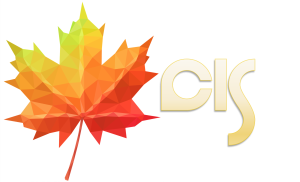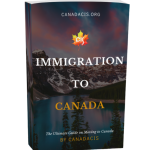How to immigrate from Ireland to Canada
Home » Blog » Immigration to Canada » Immigrate from Ireland to Canada: All The Details You Need
It is easy to understand why other nationalities chose to migrate to Canada. The country’s promise of a better quality of life is coupled with exciting cultural diversity and Canada’s natural landscapes.
The country’s communities are also famous for their welcoming and tolerant society. Canada’s commitment to excellent and fair education makes it very attractive to foreigners too. The same reasons make Irish citizens move to Canada and settle in the country for good.
If you are an Irish citizen and planning to migrate to Canada but are confused about how and where to start, this article may help you.
Read on: we will try to cover essential information to help you start right with your immigration from Ireland to Canada.
Table of Contents
👨👩👦👦 Irish Populations in Canada
There are more than 4 million Irish Canadians in Canada with full or partial Irish ancestry. It is about thirteen percent of the whole of Canada’s population, making the Irish people the fourth largest ethnic group in Canada!
The Irish people have had a significant impact on each Canadian province separately. The top five provinces with the highest number of Irish Canadians are as follows:
Ontario
Ontario
British Columbia
British Columbia
Alberta
Alberta
Quebec
Quebec
Nova Scotia
Nova Scotia
🏠 Permanent Residence in Canada: Short-Term Canada Visa Options for Irish Nationals
If you’re an Irish citizen aspiring to become a permanent resident in Canada, the application process involves different immigration pathways. Let’s explore these pathways in simpler terms.
For Irish nationals seeking short-term opportunities in Canada, there are various visa options and programs available. These avenues allow individuals to visit, work, study, or simply experience the diverse culture and landscapes of Canada for a limited time.
Option #1: Visitor Visa (Temporary Resident Visa)
A Visitor Visa, also known as a Temporary Resident Visa (TRV), is a way for Irish nationals to visit Canada for various purposes. These purposes could include going on a vacation, visiting family members or friends, or staying for a short period.
How long can you stay in Canada?
➡️Typically, this visa allows you to stay in Canada for up to 6 months.
➡️It’s a great option for those who want to experience Canada for a limited time.
Who are eligible to apply for TRV?
➡️ To qualify for this visa, you generally need to show that you have enough money to support yourself during your stay in Canada.
➡️ You also need to demonstrate your intention to return to Ireland when your authorized stay ends.
➡️ Meeting health and security requirements is important, which may involve providing medical information and not posing a security risk to Canada.
Option #2: Working Holiday Visa (IEC - International Experience Canada)
A Working Holiday Visa, part of the International Experience Canada program, is designed for Irish nationals who want to combine work and travel in Canada.
Depending on the agreement between Canada and Ireland, this visa can allow you to stay in Canada for up to 2 years.
This program is an excellent option if you want an extended Canadian adventure.
- To be eligible, you usually need to meet specific age requirements set by the agreement.
- You may also be required to have health insurance for the duration of your stay in Canada.
- It’s important to apply during specific invitation periods, which are determined by immigration authorities.
Option #3: Student Visa (Study In Canada Programs)
A Study Permit is for Irish nationals who wish to study in Canada, particularly for short-term courses or language programs.
How long can you stay in Canada?
➡️ The permit typically covers the length of your course or program.
➡️ Additionally, it allows for an extra 90 days after your studies conclude. This grace period lets you explore Canada or prepare to return home.
Who are eligible to apply for a Student Permit?
➡️ To qualify for a Study Permit, you need to have been accepted by a Canadian Designated Learning Institution (DLI).
➡️ You also must show that you have enough money to cover your tuition fees, living expenses, and return transportation.
➡️You should prove that you can financially support your education in Canada.
Option #4: Business Visitor Visa
A Business Visitor Visa is designed for Irish nationals who need to visit Canada for business-related purposes, such as attending conferences, meetings, or exploring business opportunities.
| How long can you stay in Canada? | Who are eligible to apply for a Working Holiday Visa (IEC)? |
|---|---|
| The duration of this visa varies depending on the nature of your business visit. It's typically short-term and aligned with the specific purpose of your visit. |
To be eligible for a Business Visitor Visa, you must not intend to engage in direct labor while in Canada. Your primary source of income should remain outside Canada, indicating that your business ties and income are based elsewhere. |
🏘️ Permanent Residence in Canada: Long-Term Canada Visa Options for Irish Nationals
For Irish nationals seeking to establish a more enduring connection with Canada, there are various long-term visa options and pathways available. These avenues offer opportunities to work, study, live, and potentially obtain permanent residency in the Great White North.
Option #1: Canada Express Entry Program
The Express Entry program is a key pathway to Canadian permanent residency. It allows eligible individuals to create an online profile and enter a pool of candidates. The Comprehensive Ranking System (CRS) assesses candidates, and those with the highest scores are invited to apply for permanent residency.
Eligibility for the Express Entry Program
Younger applicants tend to score higher points in this category. The maximum points typically go to candidates between the ages of 20 and 29, with points decreasing gradually as age increases.
Your educational qualifications play a significant role. Higher levels of education generally result in more points. It’s essential to have your foreign education credentials assessed and validated through designated organizations to ensure they meet Canadian standards.
Candidates with a significant amount of work experience can earn more points. The program values skilled work experience in Canada and certain occupations more highly.
Proficiency in English and/or French is crucial. Language ability is assessed through standardized tests like IELTS for English and TEF for French. Higher language scores yield more points.
This category considers factors like having a spouse or common-law partner with good language skills, Canadian work experience, or having completed a Canadian post-secondary program.
Having a valid job offer from a Canadian employer can significantly boost your points.
If you have completed a program of study in Canada, you can earn additional points.
REMEMBER!
Meeting the eligibility criteria is the first step, and you must create an Express Entry profile, accurately reflecting your qualifications. Based on your Comprehensive Ranking System (CRS) score, you will be entered into the Express Entry pool.
Consult with our expert now to start your immigration!
How Long Does the Express Entry Process Take?
The processing time for Express Entry can vary based on several factors:
Creating an Express Entry Profile
This is the initial step, which you can complete relatively quickly if you have all your documents and language test results ready.
Invitation to Apply (ITA)
Once you’re in the Express Entry pool, you’ll need to wait for an ITA. The time it takes to receive an ITA depends on your CRS score and the regular Express Entry draws conducted by the government. Higher-scoring candidates tend to receive ITAs sooner.
Application Submission
After receiving an ITA, you’ll have 60 days to submit your application for permanent residency. Ensure that all required documents are prepared and ready to be submitted promptly.
Processing by IRCC
The government’s processing time for permanent residency applications varies but generally takes around 6 to 8 months. Some applications may be processed faster, while others may take longer, depending on factors like the volume of applications and security checks.
Landing in Canada
Once your application is approved, you’ll receive a Confirmation of Permanent Residence (COPR) and a permanent resident visa (if applicable). You’ll then have to make arrangements for your arrival in Canada, which can take additional time.
Option #2: Provincial Nominee Program (PNP)
The Provincial Nominee Program (PNP) allows Canadian provinces and territories to nominate individuals for permanent residency who can contribute to their local economies.
If you’re considering the Provincial Nominee Program (PNP) as your pathway to Canadian permanent residency, understanding the eligibility requirements is paramount. Each province and territory in Canada has its specific PNP streams and criteria, but some general eligibility aspects apply:
Connection to a Province or Territory: You must express a genuine intention to settle in a particular Canadian province or territory. This could be due to factors like having a job offer, studying there, or family connections.
Suitable Skills and Work Experience: Different PNP streams require specific skills and work experience. You need to demonstrate that you possess the qualifications and experience needed for your chosen PNP stream.
Language Proficiency: Adequate proficiency in English and/or French is typically required. You may need to provide language test results as proof.
Education: Your educational background may play a role in eligibility. Some PNP streams prefer candidates with certain levels of education or specific credentials.
Job Offer (Optional): While not always mandatory, having a job offer from a Canadian employer in your chosen province can significantly enhance your eligibility.
Nomination: After meeting the eligibility criteria, you’ll need to be nominated by the province or territory where you intend to settle. Each province has its nomination process, and being nominated is a crucial step.
Express Entry (Optional): Some PNP streams are aligned with the federal Express Entry system. In such cases, you’ll need to create an Express Entry profile and be eligible for one of the federal economic immigration programs (Federal Skilled Worker Program, Federal Skilled Trades Program, or Canadian Experience Class) to be considered.
The processing time for the Provincial Nominee Program (PNP) varies depending on several factors:
PNP Stream: The specific PNP stream you apply for can impact processing times. Some streams may have faster processing, while others may take longer due to high demand or complexity.
Express Entry Alignment: If your chosen PNP stream is linked to Express Entry, the overall processing time may be shorter as you’ll be processed through both the provincial and federal systems simultaneously.
Nomination and Application: The time it takes to receive a nomination from the province or territory can vary. Once nominated, you’ll need to submit your application for permanent residency, which typically takes additional time.
IRCC Processing: After nomination, your application is processed by Immigration, Refugees, and Citizenship Canada (IRCC). IRCC’s processing time for permanent residency applications is approximately 6 to 8 months on average.
Individual Circumstances: Your individual circumstances, including the completeness of your application and any required additional documentation, can affect processing times.
Option #3: Family Sponsorship
Canadian citizens and permanent residents can sponsor eligible family members to immigrate to Canada. This program facilitates family reunification, enabling loved ones to live together in Canada.
Eligibility for Family Sponsorship in Canada
To start on your journey, it’s important to understand the eligibility requirements:
| Requirement | Description |
|---|---|
| Sponsor's Status | To be eligible as a sponsor, you must be a Canadian citizen or a permanent resident of Canada. You need to be at least 18 years old and live in Canada, except in rare situations where exceptions apply. |
| Relationship | Eligible family members who can be sponsored typically include spouses, common-law or conjugal partners, dependent children, parents, and grandparents. Sponsors must prove their relationship with the family member they wish to sponsor. |
| Financial Responsibility | Sponsors must commit to supporting their sponsored family members financially. This commitment involves ensuring they don't need to rely on social assistance. |
| Undertaking | Sponsors sign an undertaking, a binding agreement with the Canadian government, promising to provide financial support for their family members for a specific period, usually 3 to 20 years. |
| Income Requirement | Sponsors must meet a minimum income threshold to demonstrate their ability to financially support their sponsored family members without relying on government assistance. |
| No Criminal Record | Sponsors must not have a criminal record. A background check may be conducted during the application process. |
| Residency Requirement | In some cases, sponsors may need to prove that they reside in Canada. This requirement depends on the sponsored family member's relationship and whether they are already in Canada or outside the country. |
How Long Does the Family Sponsorship Process Take?
The processing time for family sponsorship in Canada can vary based on several factors:
| Factor | Description |
|---|---|
| Relationship Type | The type of family relationship being sponsored can influence processing times. Spousal sponsorships, for example, may be processed faster compared to parental sponsorships. |
| Location | Whether the sponsored family member is inside or outside Canada can affect processing times. In-Canada sponsorships may generally be processed faster. |
| Completeness of Application | Ensuring that all required documents and information are included in the application from the outset can help avoid delays. |
| Government Processing | After submission, the application undergoes processing by Immigration, Refugees, and Citizenship Canada (IRCC). Processing times by IRCC may vary, but on average, it takes several months. |
| Interview or Further Documentation | In some cases, sponsors or sponsored individuals may be required to attend interviews or provide additional documentation, which can extend the processing time. |
Option #4: Study Permit (with Path to Permanent Residency)
Irish nationals can obtain a Study Permit to pursue higher education in Canada. After completing a qualifying program, they may be eligible to apply for permanent residency through the Post-Graduation Work Permit Program (PGWPP).
To start on your journey, it’s important to understand the eligibility requirements:
Acceptance from a Designated Learning Institution (DLI): To be eligible for a Study Permit, you must first receive an acceptance letter from a Canadian Designated Learning Institution (DLI). This institution must be recognized by the Canadian government and should offer a program that meets specific standards.
Financial Support: You need to demonstrate that you have sufficient funds to cover tuition fees, living expenses, and return transportation for yourself and any accompanying family members. Financial proof is essential to ensure you can support yourself during your studies.
Clean Criminal Record: Applicants are required to provide a police clearance certificate or undergo a background check, ensuring they do not pose a security risk.
Good Health: A medical examination may be required to prove that you are in good health. This is to ensure that you won’t burden Canada’s healthcare system.
Intent to Leave Canada: You must convince immigration authorities that you plan to leave Canada upon completion of your studies. This is a crucial aspect, as a Study Permit is typically temporary in nature.
Language Proficiency: Depending on your chosen program and institution, you may need to prove your proficiency in either English or French through standardized language tests like IELTS or TEF.
Path to Permanent Residency: While not a requirement for a Study Permit, it’s essential to understand the potential path to permanent residency. Certain programs and provinces in Canada offer pathways that allow international students to transition to permanent residency after completing their studies.
The processing time for a Study Permit with a path to permanent residency can vary based on several factors:
Application Submission: Submitting a complete application with all required documents and information is crucial to avoid delays. The application processing time begins once you have applied.
Institution and Program Choice: The processing time may vary depending on the specific DLI and program you have chosen.
Country of Residence: The country where you apply from can affect processing times. Some countries may have faster processing times than others.
Medical Examination and Background Checks: If required, completing a medical examination and background checks may add extra time to the process.
Interviews or Additional Documentation: In some cases, applicants may be asked for interviews or additional documentation, which can extend processing times.
Path to Permanent Residency: If your goal is to obtain permanent residency in Canada after your studies, you should be aware of the pathways available and their specific processing times.
Option #5: Work Permits with a Path to Permanent Residency
Certain work permits, like those under the Canadian Experience Class (CEC) or the Provincial Nominee Program (PNP), may provide a route to permanent residency for eligible candidates. Gaining Canadian work experience can boost an applicant’s chances of becoming a permanent resident.
To start on your journey, it’s important to understand the eligibility requirements:
Labor Market Impact Assessment (LMIA): In some cases, your employer may need to obtain an LMIA, which demonstrates that hiring a foreign worker will not negatively impact the Canadian labor market.
Temporary or Permanent Work: Depending on your situation, you can apply for either a temporary or permanent Work Permit. Some Work Permits are designed for temporary employment, while others, like those under Express Entry or Provincial Nominee Programs (PNPs), can lead to permanent residency.
Clean Criminal Record: Applicants are typically required to provide a police clearance certificate or undergo a background check to ensure they do not pose a security risk.
Good Health: A medical examination may be required to prove that you are in good health. This is to ensure that you won’t burden Canada’s healthcare system.
Language Proficiency: Depending on your job and employer’s requirements, you may need to prove your proficiency in either English or French through standardized language tests like IELTS or TEF.
Path to Permanent Residency: While not a requirement for a Work Permit, it’s essential to understand the potential path to permanent residency. Some Work Permits, such as those under the Canadian Experience Class or Provincial Nominee Programs, offer routes to permanent residency.
The processing time for a Work Permit with a path to permanent residency can vary based on several factors:
Application Submission: Submitting a complete application with all required documents and information is crucial to avoid delays. The application processing time begins once you have applied.
Employer Compliance: If your job offer requires an LMIA, the time it takes for your employer to obtain it can affect processing times.
Country of Residence: The country where you apply from can affect processing times. Some countries may have faster processing times than others.
Medical Examination and Background Checks: If required, completing a medical examination and background checks may add extra time to the process.
Interviews or Additional Documentation: In some cases, applicants may be asked for interviews or additional documentation, which can extend processing times.
Path to Permanent Residency: If your goal is to obtain permanent residency in Canada through a Work Permit, you should be aware of the specific pathways available and their processing times.
☑️ Requirements to Immigrate to Canada from Cyprus
If you’re considering making the leap from the Emerald Isle to the Great White North, moving to Canada can be an exciting adventure. Canada offers a diverse landscape, a high quality of life, and a welcoming atmosphere for newcomers. To help make your transition smoother, here are five useful tips:
Tip #1: Research Your Immigration Options
Canada offers various immigration pathways, and understanding which one suits your circumstances is crucial. Explore options like Express Entry, Provincial Nominee Programs (PNPs), and family sponsorship to determine the best fit for you. Each program has its eligibility criteria and requirements, so thorough research is key.
Tip #2: Gather Important Documents
Ensure you have all your essential documents in order. This includes your passport, birth certificate, marriage certificate (if applicable), educational certificates, and work records. Some immigration programs may require additional documents like police clearance certificates or medical exams, so stay organized.
Tip #3: Language Proficiency Matters
Canada is a bilingual country, with English and French as its official languages. Depending on your destination and job prospects, proficiency in either language can be a significant advantage. Take language tests like IELTS or TEF to showcase your language skills, which can boost your eligibility.
Tip #4: Financial Planning
Moving to Canada involves financial considerations beyond the initial travel expenses. Be prepared to cover housing, healthcare, transportation, and other living costs. It’s advisable to have savings to sustain yourself while job-hunting or awaiting immigration processing.
Tip #5: Seek Professional Guidance
Navigating the Canadian immigration process can be complex, so seeking assistance from immigration consultants or lawyers can be beneficial. They can help you understand the application procedures, timelines, and ensure your submissions are accurate and complete.

👯 Irish Groups and Communities in Canada
When you move from Ireland to Canada, it’s natural to feel a bit lonely and far from home. However, Canada has a warm and welcoming Irish community that you can become a part of to help ease this transition. Here’s what you need to know:
Find Support in Irish Canadian Organizations
Canada has several Irish Canadian organizations, clubs, and events where you can meet people who share your Irish background. These groups provide opportunities to connect with others, make friends, and stay connected to your Irish heritage while starting a new life in Canada.
Combat Loneliness and Build Relationships
During your initial days in Canada, you might experience loneliness. Joining Irish Canadian communities can help you combat these feelings by allowing you to connect with people who have faced similar challenges and life changes. Sharing your experiences with others can make you feel more at home.
Explore Resources for Irish Canadians
The Irish Canadian Immigration Centre can be a valuable resource for Irish citizens in Canada. They can provide you with a list of Irish organizations, services, and events in your area. Whether you’re looking for cultural activities, social gatherings, or professional networks, these resources can help you find the right opportunities for your interests and needs.
❓ Move to Canada From Ireland: Top Two Questions Answered
When you move from Ireland to Canada, it’s natural to feel a bit lonely and far from home. However, Canada has a warm and welcoming Irish community that you can become a part of to help ease this transition. Here’s what you need to know:
Under the Express Entry system, each applicant will need at least $13,213. A family of four will have to prepare at least $24,553.
It will take an average of eleven weeks for a Canadian temporary work visa application process.
You may still have many questions in mind and are still confused about how to start your immigration application to Canada from Ireland up to this point. That is normal. Hence we advise that you get immigration expert assistance. You may fill-up the form below, and our immigration expert team will reach out to help you. We look forward to assisting you in getting you to Canada successfully







